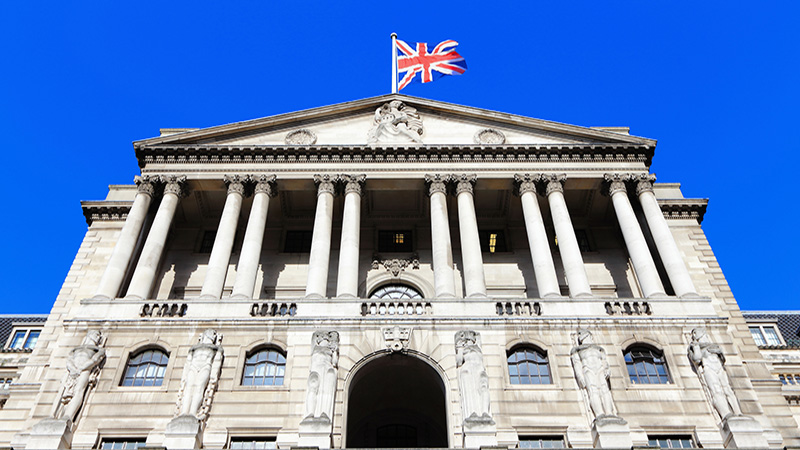The Bank of England’s Monetary Policy Committee has voted to reduce interest rates by 25 basis points to 4.75%, the second cut so far this year.
Eight members of the MPC voted in favour of the cut, with only Catherine Mann diverging from the majority.
This is despite the fact the central bank predicts Chancellor Rachel Reeves’ Budget will nudge inflation up by up to 50 basis points over the next two years.
Headline inflation figures fell to from 2.2% to 1.7% during the month of September, 30 basis points below the central bank’s 2% target.
Lindsay James, investment strategist at Quilter Investors, said the cut had widely been priced into markets at a 95% probability, with both headline and core inflation easing.
See also: Premier Miton’s David Jane: These six stocks are profit magnets but share a key risk
“Despite this benign inflationary backdrop, the UK economy has experienced weak growth over the summer, and pressures on employers have increased, even as unemployment remains low,” she pointed out.
“Interestingly, long-term bond yields have risen recently, and the market has adjusted to price in fewer rate cuts despite the economic conditions. This shift is driven by concerns over the Labour government’s additional borrowing and changes to fiscal rules, which, although sensible, are challenging to implement amid current pressures on public finances.
“Additionally, rising bond yields in the US, fuelled by fears that inflation will remain above target while the economy stays strong, have influenced this trend. Donald Trump’s aggressive spending plans, projected by the Congressional Budget Office to increase US debt to GDP to 143% by 2034, have further compounded these concerns.”
Colleen McHugh, chief investment officer at Wealthify, said the Bank opted for “sparklers over fireworks”, with policymakers choosing to look past last week’s Budget this month.
“But they likely won’t ignore the Office for Budget Responsibility’s latest projections, which anticipate both GDP and inflation climbing by 2025,” she warned. “For those counting on a third rate cut in December, brace yourselves: it’s likely to be a finely balanced decision. With a Trump presidency likely to be inflationary on a global level, and two more inflation reports due before the December meeting, now might be the time to temper expectations.”
Shamil Gohil, portfolio manager at Fidelity International, said challenges have now risen to the fore for the Bank of England over the medium term.
“The Monetary Policy Committee has a tough job balancing the future impact of the UK budget and government’s fiscal policy. Cost increases for companies from higher taxes, national insurance and national minimum wage will likely be at least partially passed on to consumers via price hikes next year,” he explained. “Fiscal stimulus should also have a positive impact on growth allaying any recessionary fears. Therefore, the sensible path continues to be for a gradual and cautious easing process as these affects are slowly realised over time.”
See also: Evelyn Partners’ Hollands: How to play US equities post election
Zara Nokes, global market analyst at J.P. Morgan Asset Management, said the Bank of England must now resist the temptation to cut rates too quickly.
“The UK economy is now contending with a number of cross-currents which make the growth and inflation outlook highly uncertain,” she said.
“Last week’s UK Budget revealed plans for front-loaded fiscal stimulus which – at a time when the supply side of the economy is constrained – risks stoking inflation next year. The return of President Trump to the White House adds another layer of complexity. While there is still a high degree of uncertainty as to what the next Republican administration will enact when in office, tough protectionist measures could be a headwind for global growth and the UK may be vulnerable given the openness of its economy.
“For these reasons the Bank should be very wary of giving concrete forward guidance on the pace of further cuts. In our view, with the underlying dynamics of the domestic economy pointing to inflation lingering for some time, the Bank should resist cutting too quickly.”
This story was written by our sister title, Portfolio Adviser








